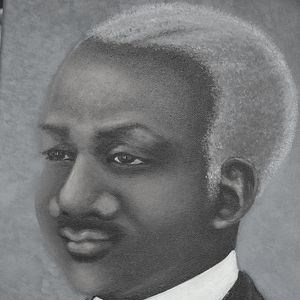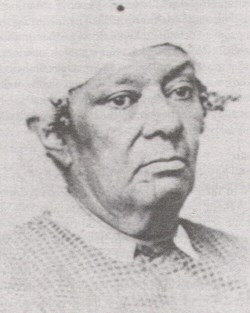Last updated: June 14, 2021
Article
A Place of Freedom: Black History in 19th Century Hawaiʻi
For over 200 years, the Black community in Hawaiʻi has influenced some of Hawaii's most vital institutions-- from founding schools to advising Hawaiian Royalty. The earliest Black settlers arrived in Hawaiʻi well before the missionaries in 1821. Perhaps the earliest record of a Black person in Hawaiʻi is of Mr. Keakaʻeleʻele (also known as Black Jack) who was already living on Oʻahu when Kamehameha I conquered the island in 1796. Many Black immigrants ventured to Hawaiʻi through the whaling industry, seeking opportunities that were not available to them in slavery-bound America. These immigrants were met with a culture where this type of violent racial discrimination did not exist-- a place of freedom.
Below are profiles of three Black Americans that greatly influenced the Hawaiian Kingdom throughout the 1800s.

Anthony D. Allen
Anthony D. Allen, known to Hawaiians by the name Alani was born into slavery in New York in 1774
Allen fled slavery at age 24 for a life at sea. He eventually purchased his freedom and settled in Hawaiʻi where he became an advisor and steward to Kamehameha the Great and was given six-acres of land in Waikīkī for his services. Allen married a Hawaiian woman and had 3 children that survived to adulthood.
In Waikīkī, Allen became a successful businessman and had numerous unacknowledged contributions to the islands. Among other contributions, he started the first bowling alley Hawaiʻi, built the first carriage road up Manoa Valley, built a school, and ran the first hospital for American seamen in Honolulu.
Anthony "Alani" Allen died of a stroke on December 31, 1835 and left behind a considerable fortune to his children.
Allen is featured in the NPS National Underground Railroad Network to Freedom Brochure.

Betsey Stockton
Betsey Stockton was born into slavery in Princeton, New Jersey in 1798. She was later given to the President of Princeton College, Rev. Ashbel Green where she was taught to read and allowed to attend classes at Princeton Theological Seminary. Stockton was later granted her freedom and joined the American Board of Commissions for Foreign Missionaries.
In 1823 she arrived in the Hawaiian islands and was assigned to a mission in Lahaina, Maui. There she quickly learned the Hawaiian language and founded Maui's first school for the makaʻāinana (common people) which is now the site of the Lahainaluna School.
Betsey Stockton left Hawaiʻi in 1825 and returned to the mainland where she continued her teaching. She died in Princeton, New Jersey in 1865.

Thomas McCants Stewart
Thomas McCants Stewart was born in Charleston, South Carolina in 1853. Throughout his early life he became a teacher, clergyman, lawyer, and eventually a civil rights leader.
Stewart came to Hawaiʻi in 1898 where he helped draft the Organic Act of the Territory of Hawaiʻi after the overthrow of the Hawaiian Monarchy. He was instrumental in the Native Hawaiians fight to regain their Kuleana lands.
Stewart left Hawaiʻi in 1905 and continued his work as an attorney in England, Liberia, and eventually the Virgin Islands where he died in 1923.
Stewart's daughter, Carlotta Stewart, graduated from Oʻahu College and became Hawaiʻi's first Black principal, influencing the education system in Hawaiʻi for years to come.
